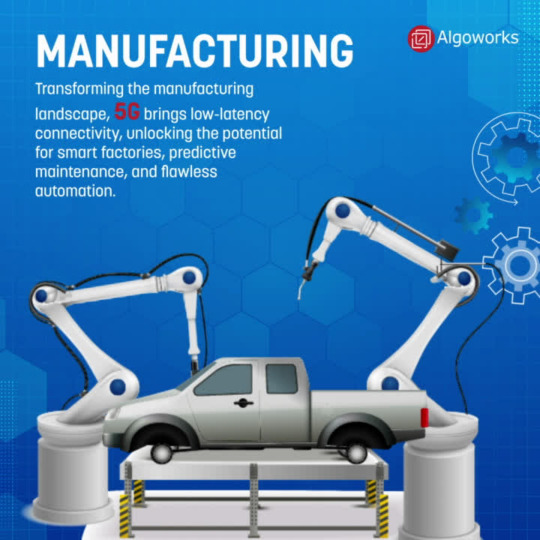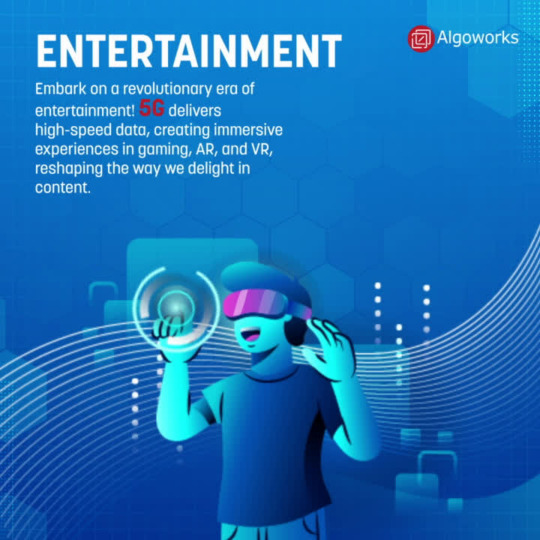#automation revolution
Explore tagged Tumblr posts
Text
AI's Quiet Coup: 5 Industries That Won’t Survive the Shift by 2026
It’s Not Hype Anymore — The Takeover Has Already Begun
The robots didn’t just arrive — they’ve been here for a while.
What started as a slow wave of automation has now turned into a silent tsunami. In 2025 alone, over 76,000 jobs were erased by artificial intelligence. Not restructured. Not moved offshore. Just… gone.
I recently spoke to a software engineer whose sister — a legal assistant at a boutique firm — was let go with no explanation beyond “AI is handling it now.” In another case, a friend in finance watched a third of his department disappear after their firm integrated a generative AI platform.
This isn’t theoretical. This isn’t sci-fi. It’s real, it’s happening now, and it’s moving fast. While tech headlines are still busy debating “what AI might do,” the reality is that it’s already doing it — and five industries are squarely in the crosshairs.
Here’s where the quiet takeover is already well underway.

Customer Support: Replaced by Scripts That Learn Faster Than Humans Remember long wait times with support centers? Soon, that might sound as outdated as dial-up. AI-powered chatbots like GPT-4.5 and Anthropic’s Claude are already running 24/7 support desks — answering queries, resolving issues, even handling refunds.
Companies like Shopify, Delta, and banks worldwide have quietly begun replacing entire tiers of customer service reps with conversational AI. The bots don’t sleep, don’t unionize, and — with reinforcement learning — they get smarter every week.
If your job involves reading off a script or solving FAQs, the script has already moved into the cloud.
Legal & Paralegal Services: Case Law Meets Code AI isn't arguing in court yet — but it’s doing everything up to that point. Contract analysis, compliance checks, research summaries, legal document generation — tools like Harvey AI and Lexis+ AI are handling it all in seconds.
Law firms have slashed junior roles and entry-level paralegal positions, replacing them with AI assistants that don’t need coffee breaks or billing hours. In some firms, AI now drafts 90% of boilerplate contracts.
If you’re fresh out of law school and hoping to cut your teeth on discovery work — AI already beat you to it.
Accounting & Bookkeeping: Excel Just Got Smarter Think your spreadsheet skills will protect you? Think again. Accounting, once considered a stable career path, is being unbundled by AI platforms that can categorize expenses, reconcile books, and flag anomalies in real-time.
QuickBooks and Xero already offer built-in AI features that cut the need for junior accountants by half. Entire departments that once ran payroll or handled invoicing are now managed by a single person and a smart algorithm.
It’s not that your job is being outsourced. It’s being out-thought.
Content Creation: The Rise of the Robot Writer Blog posts, ad copy, press releases, video scripts — AI can now generate all of it in seconds. Companies used to hire teams of copywriters. Now they license tools like Jasper, Copy.ai, or just tap into GPT-based systems.
What used to take a week now takes 10 minutes. Worse, it’s not just text. AI is generating images, editing video, and even making music — often indistinguishable from human output.
If you write for a living, you're no longer just competing with other writers. You're competing with a machine that doesn’t need royalties.
Education & Tutoring: Personalized Learning at Scale AI tutors are now outperforming their human counterparts in both engagement and results. Khan Academy’s “Khanmigo” and platforms like Sora are building personalized learning journeys, tailored in real-time to each student’s pace and level.
While teachers are still essential for emotional intelligence and guidance, administrative tasks — grading, lesson planning, student analytics — are rapidly becoming automated. And for many students worldwide, AI tutors are the classroom.
In developing nations, this shift isn’t just replacing teachers — it’s bypassing them altogether.
What Comes Next? This isn’t a doomsday prediction. But it is a reality check.
Goldman Sachs predicts that up to 300 million jobs could be affected by AI. The early tremors are here — the layoffs, the restructures, the quiet departures. But this wave isn’t random. It’s targeted. Predictable. Strategic.
If you work in a repetitive, rule-based role in any of the industries above, now’s the time to act. Reskilling, adapting, and learning to work with AI is no longer optional. It’s the difference between staying relevant and being quietly replaced.
The takeover isn’t coming. It’s here. And it’s accelerating.
#AI takeover#future of jobs#machine learning#job loss#AI in business#automation revolution#AI and work#robotic disruption#tech trends#industries at risk
0 notes
Text
At Vengo AI, we’re transforming businesses by turning chatbots into sales-closing, customer-loyalty-building geniuses—because your business deserves more!
Visit: VengoAI.com
0 notes
Text
At Vengo AI, we’re transforming businesses by turning chatbots into sales-closing, customer-loyalty-building geniuses—because your business deserves more!
Visit: VengoAI.com
0 notes
Text

Riding the Automation Wave: Exploring the Transformative Impact and Future Implications!
1 note
·
View note
Text





#reminder#class war#workers of the world unite#conquest of bread#anarchism#socialism#marxism#fully automated luxury gay space communism#the revolution#antifascist#anti capitalism#emma goldman#leftist memes
82 notes
·
View notes
Text

Dazibao. 1967
大字报
#china#yaoisheviks#毛泽东#cultural revolution#history of china#history#storia#cina#cinese#fully automated luxury gay space communism#commies#communism#socialism#marxism#karl marx
18 notes
·
View notes
Text
hi guys!!! revcol is a socialist/communist collective which is dedicated to advocating for social and peaceful revolution, in the united states. we wont purely use this for politics, sometime just user personal stuff, so ill introduce our members
everett - meeee, im the founder of revcol, im a tmasc butch lesbian, and i live in south carolina but im from louisiana, im a college student (visual arts major), and im engaged to my beautifulll cofounder. i'm a trotsykist ml, and my family are polish jews, and ive been a socialist since i was or 14-ish.. my main inspirations are obvi trotsky, abbie hoffman, tim leary, and eduard bernstein teodora/teya - i'm one of the cofounders, and everett's fiance, 'im a college student too, i'm a psych major, i'm a genderfluid lesbian, and i'm a demsoc but im most inspired by chomsky, i think he's neat. my family moved here in the 90s, and we're originally serbs, and i live in sc too. i'll probably not be on here a lot but feel free to ask me whatever :)
cal - Hi yall, i'm callum, i'm also one of the co-founders, i'm a trans guy from texas, and I am in highschool but I have an interest in photography! Im a syndi and I like cesar chavez, my family's hispanic and hearing about him and the strength of unions kinda radicalized me.
bun/bunny - hiii, im bunny also go by edmund, im new to the group and im a maois and guevarist, but im prolly not gonna be active. im friends with everett, and he introduced me to a lot of theory!!
#leftist#leftism#socialism#communism#fully automated luxury gay space communism#organization#politics#us politics#trump#america#queer community#queer#gay#transgender#trans#revcol#revolution#social justice#social war
14 notes
·
View notes
Text
The fundamental problem posed by the cybernation revolution in the U.S. is that it invalidates the general mechanism so far employed to undergird people’s rights as consumers. Up to this time economic resources have been distributed on the basis of contributions to production, with machines and men competing for employment on somewhat equal terms. In the developing cybernated system, potentially unlimited output can be achieved by systems of machines which will require little cooperation from human beings. As machines take over production from men, they absorb an increasing proportion of resources while the men who are displaced become dependent on minimal and unrelated government measures—unemployment insurance, social security, welfare payments. These measures are less and less able to disguise a historic paradox: That a substantial proportion of the population is subsisting on minimal incomes, often below the poverty line, at a time when sufficient productive potential is available to supply the needs of everyone in the U.S. "The Triple Revolution" was an open memorandum sent to U.S. President Lyndon B. Johnson and other government figures on March 22, 1964. It concerned three megatrends of the time: increasing use of automation, the nuclear arms race, and advancements in human rights. In his 2015 book Rise of the Robots, Martin Ford claims The Triple Revolution's predictions of steady decline in future employment were not wrong, but rather premature. He cites "Seven Deadly Trends" that began in the 1970s-1980s and by the mid-2010s appeared set to continue: 1. Stagnation in real wages 2. Decline in labor's share of national income in many countries (breakdown of Bowley's law), while corporate profits increased 3. Declining labor force participation 4. Diminishing job creation, lengthening jobless recoveries, and soaring long-term unemployment 5. Rising inequality 6. Declining incomes, and underemployment for recent college graduates 7. Polarization and part-time jobs (middle-class jobs are disappearing, to be replaced by a small number of high-paying jobs and large number of low-paying jobs)
2 notes
·
View notes
Text
do you ever do a practice round so bad you get whiplash from your own case
#that 2nr help#my friend was judging and she was like “i feel like i get what you were trying to say… but your link chains were gibberish” 😭😭😭😭#“so like. are you advocating for a socialist revolution for your solvency…..?”#uhm. sure. I GUESS SO#i just hate the neg on this topic because solving for labor displacement is so weird#like ubi/command econ and collective ownership of agi are okay answers#but UBIs post-human labor breakdown are lowkey insanely morally questionable#and neg doesn’t get fiat power on the working class revolting 😭😭😭#how to reclaim the means of production: an LDer’s guide#idk man i feel like by the end of this season i’m literally going to be running fully automated luxury communism#and my lay judge circuit will not buy that sorry 🙂↕️🙂↕️🙂↕️🙂↕️
2 notes
·
View notes
Text
Step into Financial Freedom with DLC Coin Bot

Are you looking for an opportunity to improve your income and invest your time wisely?With DLC Coin Bot, you can begin your journey in the world of cryptocurrencies with ease and safety. This bot is designed to be your personal guide to earning profits in an innovative and efficient way.No prior experience is needed—just the determination to succeed. Start now and join a growing community of individuals achieving their financial goals with the help of this smart tool.Take the first step today and make your future brighter
Click on the link and check for yourself https://t.me/DLCcoin_Bot/app?startapp=i_1214717039
#Crypto Community#Digital Wealth#DLC Coin Bot#Innovative Profits#Smart Investment Tool#Cryptocurrency World#Financial Freedom#Future Finance#Financial Goals#Easy Registration#Secure Investments#No Experience Needed#Earning Potential#Wealth Management#Crypto Revolution#Investment Opportunities#Automated Profits#Financial Independence#Online Earnings#Digital Assets#Blockchain Solutions#Cryptocurrency Trading#Secure Crypto Transactions#Digital Finance Platform#Future Investments#Crypto Savings#Crypto Tools#Growth Opportunities#Innovative Technology
4 notes
·
View notes
Text
Artificial Intelligence [AI] in 2025: Jobs, Tools, Automation & Career Ultimate Article
What is Artificial Intelligence (AI)? Definition and Concept Artificial Intelligence (AI) refers to the development of computer systems that can perform tasks typically requiring human intelligence, such as learning, problem-solving, reasoning, perception, and language understanding. These systems use algorithms and data to make decisions, often without human intervention, enabling them to…
#AI automation tools#AI career opportunities#AI in business automation#AI in the workplace 2025#AI job market trends#AI job roles and salaries#AI jobs 2025#AI revolution 2025#ai tools#AI tools for productivity#ai websites#AI-powered job search tools#artificial intelligence#Artificial intelligence career guide#Best AI tools 2025#chat gpt#chatgpt#chatgpt prompts for productivity#Future of AI jobs#google bard ai website#Machine learning jobs 2025#Top AI certifications 2025#top artificial intelligence companies in india listed on nse
1 note
·
View note
Text
AI
i think a lot of people really misunderstand what the actual threat that "AI" poses is. AI is not going to try to wipe us out for any reason intrinsic to it, because AI is not capable of having intrinsic motivation (thankfully). rather, AI is a problem because it increases the power of those already powerful, and further marginalizes anyone who isn't powerful. In other words, the problem with AI isn't AI itself, the problem is those who use it, who are altogether too human.
Two major threats come to mind, both of them incredibly obvious when you think about it.
First, corporations will naturally favor any innovation which cuts costs or gives them an edge over their competition, regardless of the consequences to both their workers and their customers. Those in charge of the corporation will always seek to automate any part of the company that isn't them to cut costs, even if it is significantly less efficient or more infuriating to work with. This means that, as with the agricultural revolution and the various periods of automation during the industrial revolution, we are on the cusp of a massive loss of employment across all sectors as humans are replaced with machines.
however, this will be worse than previous periods, because while in previous centuries the removal of some jobs would introduce new jobs to replace them, such will likely not be the case for jobs replaced by AI. Further, certain occupations which we had assumed would be safe have turned out to not be safe from automation at all. Nobody seemed to care about how automation will destroy jobs until "AI art" became a thing, and do you know why? because everyone assumed that creative work was safe. and while algorithms cannot truly match an actual gifted artist in skill and creativity, it doesn't need to, because it's just more convenient, and much more cost-efficient to generate an image procedurally rather than commission it.
maybe next time the art community will take the threats posed to the working class by automation more seriously smh. But i guess it's too late now.
And when I say that corporations will replace humans regardless as to it's efficiency, I mean it. Have you noticed that almost no major company has an actually useful customer support system any more? it's all automated, and it's all useless. Some companies are flat out just not hiring humans for customer support any more, instead relying on a series of generic automated response trees that do nothing to solve the problem and just make the customer angry. What's to stop them from doing the same thing, but with everything from marketing to janitorial work?
AI will continue to replace jobs over and over again until the only jobs left will be the ones that are actually doing the replacement themselves. In other words, at a certain point we will reach a point where the only jobs are government jobs, high-level corporate jobs, and the engineers who are designing the AIs. And if any engineer is stupid enough to design an AI that can design other AIs, that job may be gone too.
the other major problem with AI is what happens when it gets into the hands of government agencies. Which it already has, to an extent. We have been using simple, dumb AI in drone targeting systems for quite awhile now. Despite the fact that it doesn't really work and gets civilians killed more often than not, governments still use this software because it doesn't put their own men at risk. Likewise, the government will almost certainly begin employing robotic soldiers as soon as they become available, even if they don't work very well, because it means they aren't putting their own people at risk. But often in war you need people to be there, in order to make judgement calls. What if a lazy commander tells the machines to "kill everyone in that bunker", but the bunker turns out to be a civilian residence and now dozens of civilians have been killed? The issue here is that AI WILL obey whoever orders it to do something, regardless as to if the order makes any sense or has been negated by unforeseen circumstances.
all this to say that if AI destroys civilization as we know it, it will be because humans told it to. in order to survive, we must restructure society, remove the focus from profit and place it on human dignity. We must deliberately employ people even if it would be cheaper not to do so, because not doing so will have horrific repercussions. Also because it's the right thing to do.
while we're at it, it would probably be best to decentralize government and corporations so they don't get the chance to do something like this. *cough distributism cough principle of subsidiarity cough*
#AI#AI Art#automation#industrialization#industrial revolution#player piano#principle of subsidiarity#distributism
4 notes
·
View notes
Text

人民公社的食堂
#communism#maoism#mao zedong#marxism#socialism#history of china#china#cultural revolution#fully automated luxury gay space communism#commies
12 notes
·
View notes
Text






#fully automated luxury gay space communism#communist memes#meme the revolution#anti imperialism#anti zionisim#be gay do crimes
2 notes
·
View notes
Text






Dive into the future with 5G! 🚀 Revolutionizing industries with lightning-fast connectivity, seamless automation, and immersive experiences. Discover how 5G is reshaping the landscape.
2 notes
·
View notes